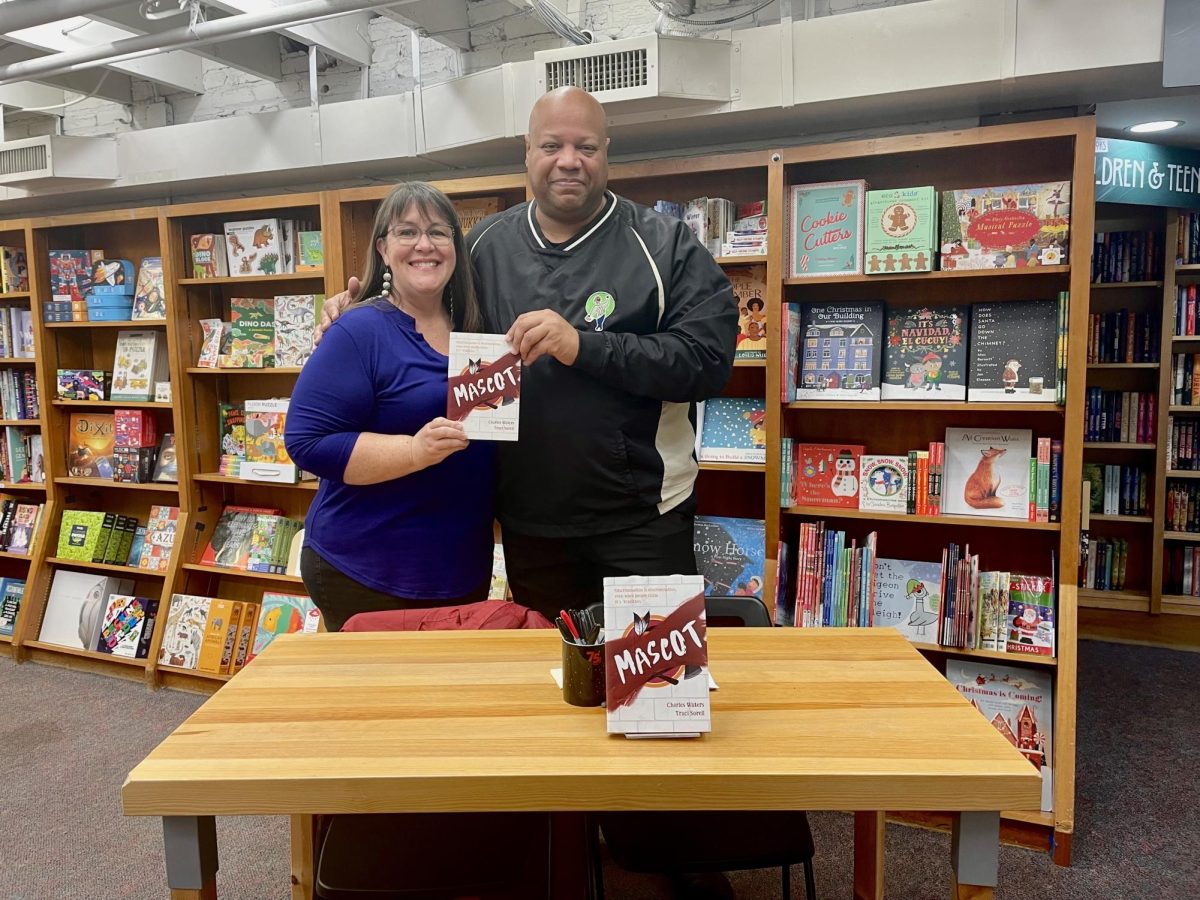On Nov. 16, best-selling authors Charles Waters and Traci Sorell hosted a book signing event at Politics and Prose Bookstore for their new novel “Mascot.” The bookstore publicized “Mascot” to highlight the debate surrounding the indigenous mascot controversy, which is especially prevalent with sports teams in D.C..
“Mascot” explores the controversy surrounding a fictional high school football team, the Rye Braves, whose mascot portrays an indigenous person. One character, an English teacher, called for her students to argue for or against indigenous mascots as an assignment, which sparked change and debate in the fictional community of Rye, Virginia. Told through several perspectives, “Mascot” is aimed at middle-grade readers, introducing them to the complexity of tradition and discrimination through accessible literature.
Waters and Sorell’s visit to Politics and Prose comes after the recent name change to Washington, D.C.’s football team, presently known as the Washington Commanders. The team changed its name in February of 2022 following years of controversy and backlash from indigenous communities.
Politics & Prose Events Manager Heidi Yoon believes that “Mascot” adequately represents different voices and perspectives of the debate.
“I think that there have been some really phenomenal books that have been coming out in the last year or two by Native American writers,” Yoon said. “[The visit] was so timely because of the topic of the Washington Commanders mascot changing. I was waiting for that change, it could not have come soon enough, but to see it in a book and to see different voices and thoughts about it, I thought was really powerful.”
Sorell is a citizen of the Cherokee Nation, and her books, including “We Are Grateful: Otsaliheliga” and “We Are Still Here!: Native American Truths Everyone Should Know,” aim to educate readers on Native culture and communities. Waters is a poet and author who has published many inclusive and diverse books, most notably “African Town,” which won the 2023 Scott O’Dell Award for Historical Fiction.
Waters and Sorell took roughly two years to research and write “Mascot,” reviewing over 75 articles, dissertations and documents. The authors used feedback from one family friend’s daughter, a Black Cherokee teenager, to inform their characterization of Callie Crossland — one of the protagonists. Salvadoran picture book author René Colato Laínez also guided the authors, helping to refine the slang Luis, a Salvadoran student, uses as he narrates parts of his perspective in Spanish.
MCPS eliminated indigenous school mascots in 2001, forcing Poolesville High School to change its mascot from an Indian to a Falcon in 2002. However, MCPS hasn’t formally banned individuals from wearing attire depicting the former mascots, and some indigenous parents are fighting for policy change against common slurs.
MCPS contains fewer than 400 Indigenous or Alaskan Native students, according to The Washington Post. For indigenous high school students across the country, the psychological effects of having a Native American mascot are very impactful.
University of Michigan professor Stephanie Fryberg, a member of the Tulalip Tribe, studies the psychological effects of indigenous mascots on both Native and non-Native people.
“Across a set of studies, we found that [indigenous people] being exposed to a Native mascot [have] decreased self-esteem, decreased their sense of community worth and their belief that their community can improve itself, and decreased achievement-related future goals,” Fryberg said.
Waters discussed the nuances of creating a character like Sean, a white student from a working-class family supporting the Rye Braves school mascot.
“There are many people you may disagree with but will vehemently give you the shirt off their back if you were cold,” Waters said. “That’s the kind of nuance Traci and I were going for.”
The authors continue to share inspiring stories and have several upcoming projects including “The Mistakes That Made Us: Confessions from 20 Poets,” which Waters helped to curate, and “Riding the Trail: Cherokees Remember the Removal,” co-authored by Sorell and Will Chavez.
“The process of writing ‘Mascot’ has actually made me more hopeful.” Sorell said. “My hope is that as more young people read it, they will look at and examine the issue if they never have, and raise that awareness. My hope is that they see the importance of having conversations and using their voices.”
This story was originally published on The Black & White on December 1, 2023.




































